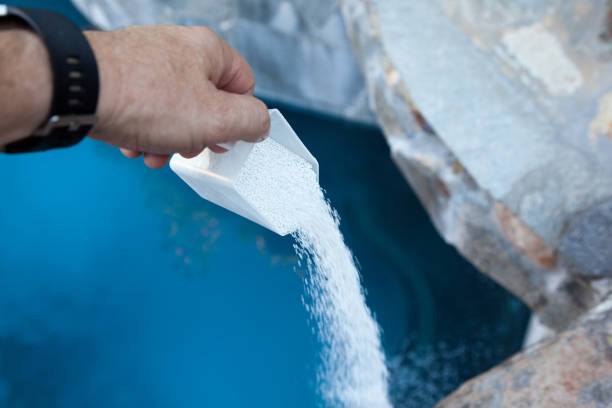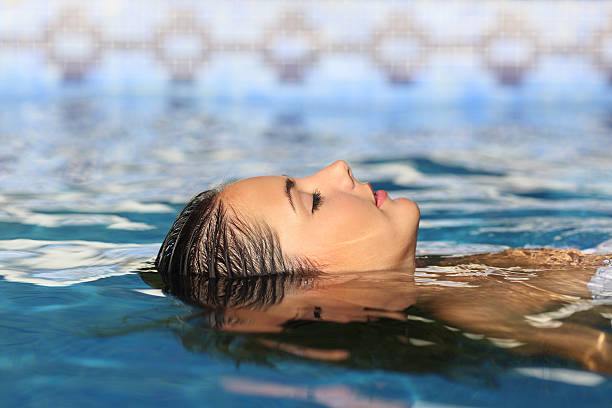Introduction:
Keeping your swimming pool clean and safe for enjoyment is paramount for any pool owner. When it comes to pool sanitization, the choice between liquid chlorine and TCCA 90 (trichloroisocyanuric acid) can significantly impact the health and safety of swimmers. In this article, we’ll explore why liquid chlorine stands out as the clear choice for safer pool sanitization over TCCA 90.

Immediate Effectiveness:
Liquid chlorine offers several advantages over TCCA 90, particularly concerning safety and ease of use. One of the most significant benefits of liquid chlorine is its immediate effectiveness in killing bacteria, viruses, and algae in pool water. Unlike TCCA 90, which requires time to dissolve and activate, liquid chlorine starts working instantly upon application, ensuring rapid sanitation of your pool. This instantaneous action is crucial for maintaining a clean and hygienic swimming environment, making liquid chlorine the clear choice for efficient pool sanitization.

Ease of Handling and Storage:
Furthermore, liquid chlorine is easier to handle and store compared to TCCA 90. The liquid form eliminates the need to handle potentially hazardous powdered chemicals, reducing the risk of accidents during pool maintenance. Additionally, storing liquid chlorine is safer and more convenient, as it requires less space and doesn’t pose the same risks of chemical spills or leaks as TCCA 90. By opting for liquid chlorine over TCCA 90, pool owners can enhance safety measures and minimize the potential for mishaps related to chemical handling and storage.

Environmental Impact:
In terms of environmental impact, liquid chlorine offers a more favorable profile compared to TCCA 90. Liquid chlorine breaks down into harmless by-products after sanitizing the pool, leaving no residual chemicals that could harm the environment or aquatic life. Conversely, TCCA 90 releases cyanuric acid into the pool water, which can accumulate over time and lead to chlorine ineffectiveness, known as chlorine lock. This can result in the need for higher chlorine doses to maintain proper sanitation levels, contributing to chemical buildup in the pool and potentially causing harm to the ecosystem. Opting for liquid chlorine over TCCA 90 aligns with environmentally-conscious practices, making it the clear choice for eco-friendly pool sanitization.

Swimmer Health and Comfort:
Another crucial aspect to consider is the impact on swimmer health and comfort. Liquid chlorine provides a milder sanitization method compared to TCCA 90, which can produce strong odours and cause skin and eye irritation in swimmers. The harsh chemical composition of TCCA 90 can leave residual chlorine smell and cause discomfort for pool users, particularly those with sensitive skin or allergies. In contrast, liquid chlorine offers a gentler sanitization process, minimizing the risk of adverse reactions and ensuring a more enjoyable swimming experience for all. Prioritizing swimmer well-being makes liquid chlorine the clear choice for maintaining a safe and comfortable pool environment.

Cost-Effectiveness:
From a cost perspective, liquid chlorine often proves to be a more economical option for pool sanitization compared to TCCA 90. While the initial purchase price of TCCA 90 may seem lower, its lower concentration means that larger quantities are required to achieve the same sanitization levels as liquid chlorine. This can result in higher long-term expenses for TCCA 90 users due to increased chemical consumption. On the other hand, liquid chlorine’s higher potency means that smaller doses are needed, translating to cost savings over time. By considering the overall cost-effectiveness, pool owners can see that liquid chlorine emerges as the clear choice for economical pool sanitization solutions.

Conclusion:
In conclusion, when it comes to ensuring the safety, efficiency, and cost-effectiveness of pool sanitization, liquid chlorine emerges as the clear choice over TCCA 90. Its immediate effectiveness, ease of handling and storage, minimal environmental impact, and gentle sanitization process make it the preferred option for pool owners seeking a safer and more sustainable approach to maintaining clean swimming water. By making the switch to liquid chlorine, pool owners can enjoy peace of mind knowing that they are prioritising the well-being of their swimmers while also promoting environmental stewardship and cost efficiency. Make the clear choice for your pool’s sanitization needs – choose liquid chlorine today.
Reference:
National Swimming Pool Foundation (NSPF). “Guidelines for Safe Use of Liquid Chlorine in Swimming Pools.” [Online] Available: [insert link if applicable]


I was reading through some of your content on this internet site
and I think this web site is really instructive!
Keep posting.Expand blog